On Friday June 22nd 2012, a small delegation from Belgrade’s Women in Black travelled to the Bosnian village of Dzulic (near Zvornik) tomeet with local womeninfriendly camaraderie and solidarity. We arrivedin Dzulic, a quintessential Bosnian village of about 500 families, just as the scorching late afternoon heat began toebb. At Dzulic’s cultural center several women waited outside to welcome us. Inside, a group of (perhaps) thirty women were gathered – some from Dzulic, others from Zvornik, all survivors of egregious indignities, violence, and trauma of war and the injustices of its aftermath.Throughout the next few hours, an open conversation unfolded over cups of domestic coffee, quite a few cigarettes, and glasses of a local milky-white juice made from corn. Some women spoke about their frustrations with local government and the daily struggles they faced in rebuilding their lives. Other women spoke to the destitute economic situation hinders social restoration and political progress.A few (particularly from Zvornik) noted their disappointment with the residual fascism and aggression of their Serbian neighbors. One woman lamented with weary aggravation that she still has not been able to bury her husband. Still, while a few women spoke at length, many said very little.
During this discussion I looked at each of the women. I was struck by the wide demographic range of women representedin that room. Some appeared to be as young as 35 years, while others were no doubt closer to 90. Some were dressed in colorful, contemporary cosmopolitan fashions, while others wore the more traditionalclothes I have come to associate with the rural villages of ex-Yugoslavia. Some covered their hair with a loose hijab, others did not. Yet regardless of their physical differences, and the assumed religious, political,and/or socialdistinctions their various clothing choices might suggest, what stood out most immediately to me wasthe kindness and light that shone in each woman’s eyes. I felt, all at once,an intense affinity for these women,a humbling admiration for the strength and tenacity that came through in their words, and an utter amazement at the persistent undercurrent of warmth andjoy that shone through their eyes. Still, as a foreigner, with only a cursory command of B/C/S language, I wondered if I might be missing something. Each of these women had lost so much... suffered so much... struggled so much... and yet did not seem broken. They were notso much victims as SURVIVORS!
Belgrade’s DAH Teataralso joined us in Dzulicto share their performance Crossing the Line (based on a testimonies from the book Women’s Side of War). Having seen Crossing the Line on several occasions (in Serbia as well as in New York), and having worked for both DAH &ZuC as a volunteer throughout the last several years, I was looking forward to seeing DAH perform for an audience of women who could directly identify with the experiences represented in Crossing the Line. Further, I had learned that there had not been a live performance in the village of Dzulic for at least 20 years, so the performance had attracted quite a large audience for such a small village. The DAH actresses did a marvelous job – as always, I was moved to tears by the performance. Yet, afterward, during the usual accompanying ˝talk back˝ session with the audience, I was surprised by the lack of discussion. My first thought was that perhaps this performance was too close to their own experience – that the women in the audience were upset by what they saw, too overwhelmedeven to speak. While I’m sure that this is partly true for some of the women present, closer reflection suggestedsomething more complex at work. It occurred to me that perhaps, in some ways, these women were tired of having their identities reduced to their victimization, that their experiences and identities (both within the war, and particularly more recently) are much more complex than this. The rest of the evening reinforced this thought.
After the performance, the women had prepared a feast! Together we enjoyed amazing domestic specialties - from stuffed paprika, to sarma, to cabbage salad... and a whole amazing range of cakes and sweets. While we talked and laughedtogether late into the evening, some of the women made it their duty to ensure I had tried every last dish and cake on the table, while others told stories about their children, their gardens,or their homes. As the evening came to a close, the women slowly took leave with warm hugs and invitations to return. The DAH Teatar crew packed-up their van and headed back to Serbia. And our most gracious host, a beautiful dark-haired woman in her early forties named Suada, escorted us to her home in the heart of the village. (It must be said, though not particularly relevant to my story, thatSuada’s home is as warm and welcoming as it is impeccably decorated!)
Under Suada’s sincere hospitality, we sat on the terracedrinking coffee and chatting into the wee hours of the morning. In the course of the conversation I learned that, after the war, there were no men left in Dzulic. The women who returned helped one another to rebuild their lives and their homes, and through this process they have rebuilt a renewed sense of community with one another. I also learned how women like Suada helped to organize the local women to advocate for their rights to return and to help one another negotiate their unfamiliar (and undoubtedly traumatizing) post-war lives. Naturally, as Suada and the others spoke about their experiences, there was a deep sadness in their stories. But what came across to me even more strongly was a sense of defiance, a sense that while certainly life-changing, the paralyzing nature of their sadness and despair had given way to determination, and that through this process (and the solidarity they found with one another) in the intervening years between the war and the present, they had been transformed – from victims to survivors.
This realization is the crux of my experience in Dzulic and, in some ways, Dzulic is representative of one of the most important lessons I have learned throughout my 10+ years studying, travelling and working in former Yugoslavia. While dealing with the past certainly means accounting for the ways in which people were wronged, (and accountability and responsibility are certainly a primary priority), transitional justice cannot stop there – particularly not for women. The story of the women of Dzulic is about more than their victimization—more than war. It is about the life and death of a nation, of one’s identity, and of faith in humanity. It is a story of dawning ethno-nationalism and intimate intra-fratricidal violence—of people raped, tortured, and killed, often by friends and neighbors. But it is also a complex story of gender oppression within which we begin to see a broader women’s narrative of war – one that transcends regional ethno-national identities, and has broad lessons for women’s experiences globally. And within that story there is hope—the possibility of maintaining humanity in the hysteria of war, the prospect of overcoming “us” and “them” thinking, the chance to transcend the inevitable role of victim that war thrusts upon women, the possibility of finding agency in the process of transition.
A grotesquely gendered experience, war forces women to inhabit gender in the most primitive sense – as it is thrust upon her. In war, hyper-normative patriarchal gender constraints are (re)drawn in stark relief – women'sconflict experiences directly reflect a culture’s most gender-oppressive patriarchal peacetime tendencies. This is the global condition of womanhood. Though gender disparity and oppression manifest in different ways and extents in every culture, it is entrenched at every level, replicated and reinforced in uninterrogated corners of even the most progressive cultures.
This gender oppression does not stop in war’s aftermath – in fact it continues to fester. As such, it is important to address women’s diverse, manifold wartime and post-war experiences in a way that accounts for each woman's complex and dynamic humanity. While, of course, the stories women’s victimization in the BiH war are certainly devastating and need to be told, a singular focus on women’s victimization is a myopic view of women’s war experience, and is a paternalistic, patriarchal, stunted view of women in the aftermath of war. Even while horrifying in its scale and degree, the image of the passive female victim is one that we are culturally accustomed to accept. Revealing and combating the cultural assumptions that make both war and gender oppression possible goes beyond attention to women’s victimization. As women suffer both as a part of the group at large, and as a gendered body, the range of gendered war experiences can offer insight into the root of global gender oppression.
Attending to women’s manifold wartime and post-war experiences, and celebrating the ways in which some women have found a new sense of agency through their post-war recovery can help establish interethnic solidarity and empower other women to find a stronger public voice. This in turn can both influence greater gender consciousness and can challenge normative patriarchal frameworks - an attempt to de-center and dislocate the assumptions that perpetuate gender inequity by giving voice to a previously unhearable range of women’s experiences. While this is in no way an ultimate solution, it is does suggest that women can use the common threads of their gendered experiences as an alternative foundation for identity, one that perhaps empowers them to have a public presence and work to shape a more conscious and equitable political present and future, as changing global gender consciousness is the only permanent solution to oppression and violence – in war or in peace.
Christina M. Morus, PhD
Assistant Professor of Gender & Genocide Studies
Richard Stockton College of New Jersey
Activist, Women in Black - Belgrade
Click on the first photo from this event.
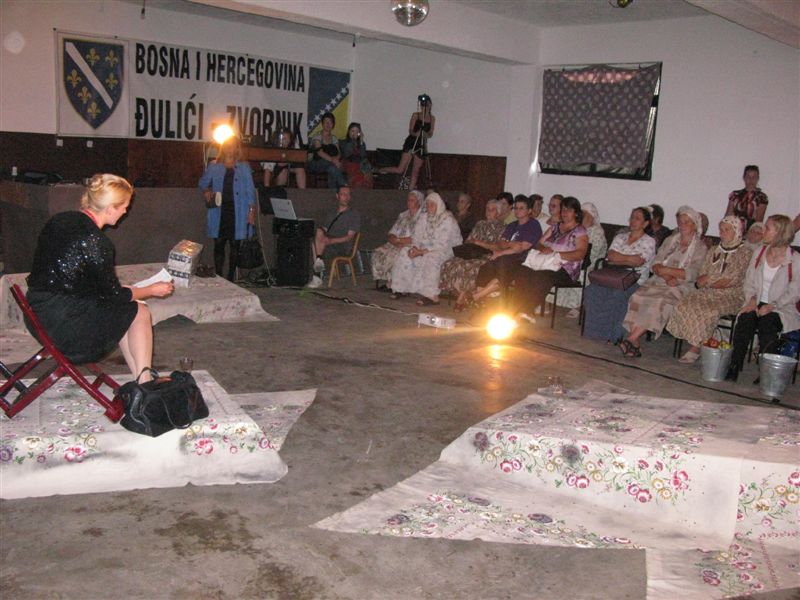 |
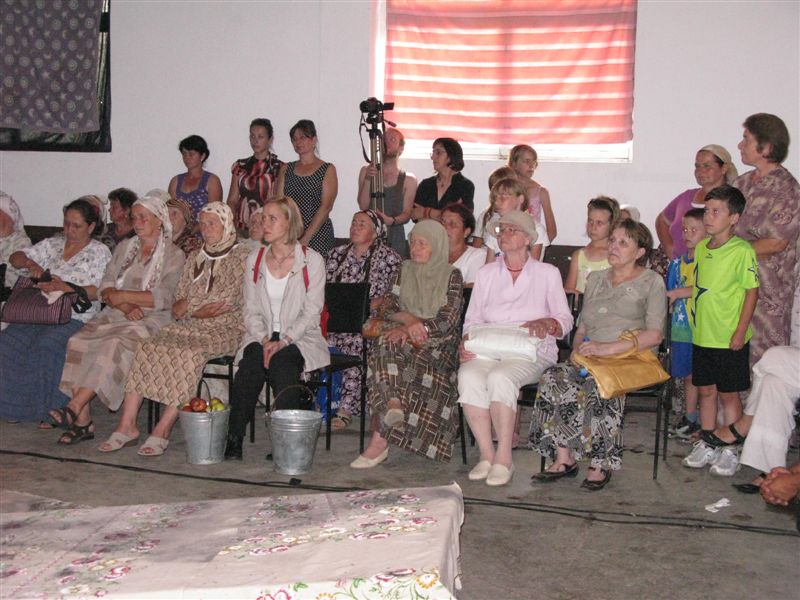 |
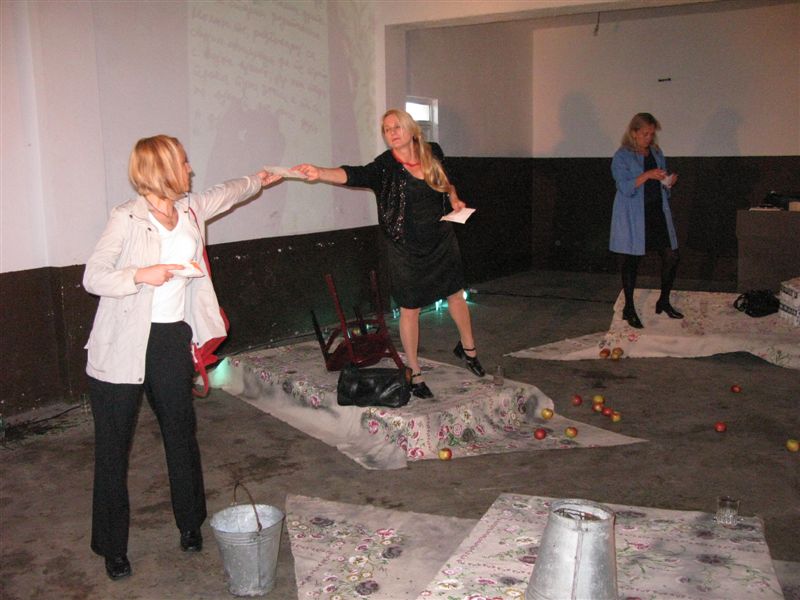 |
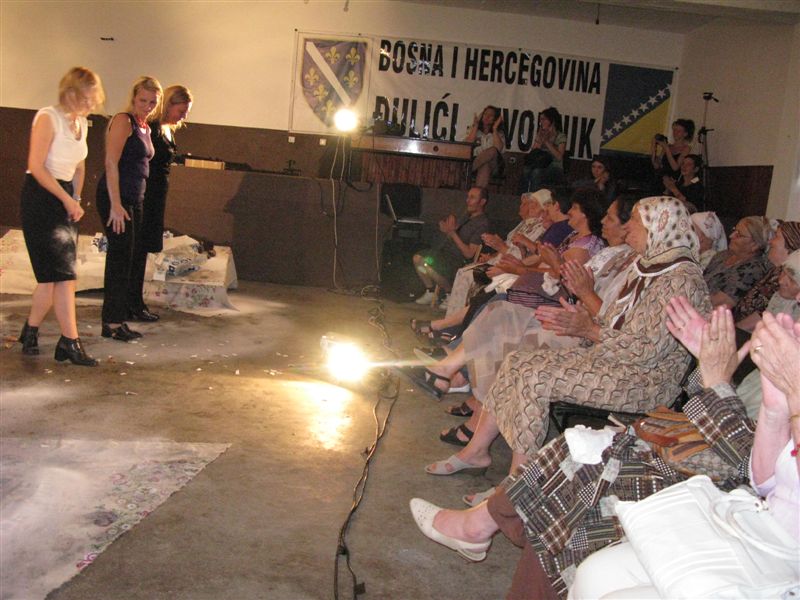 |
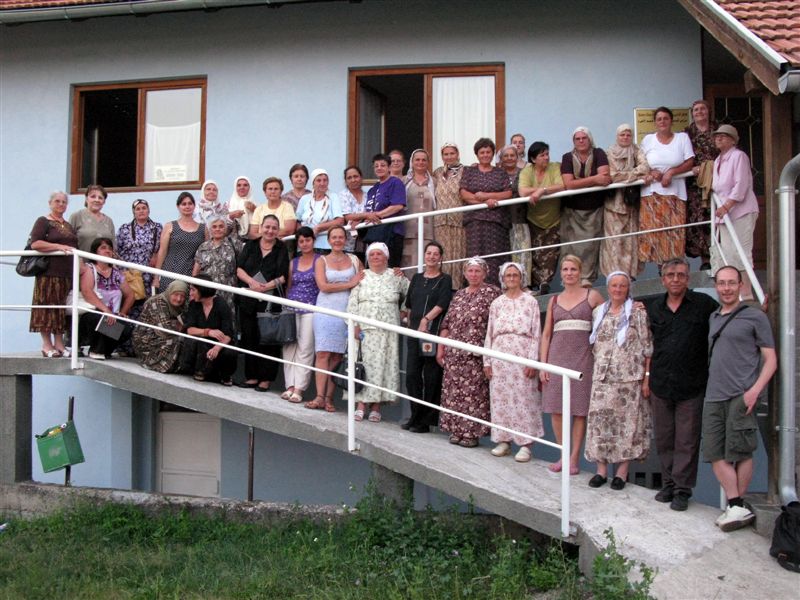 |


